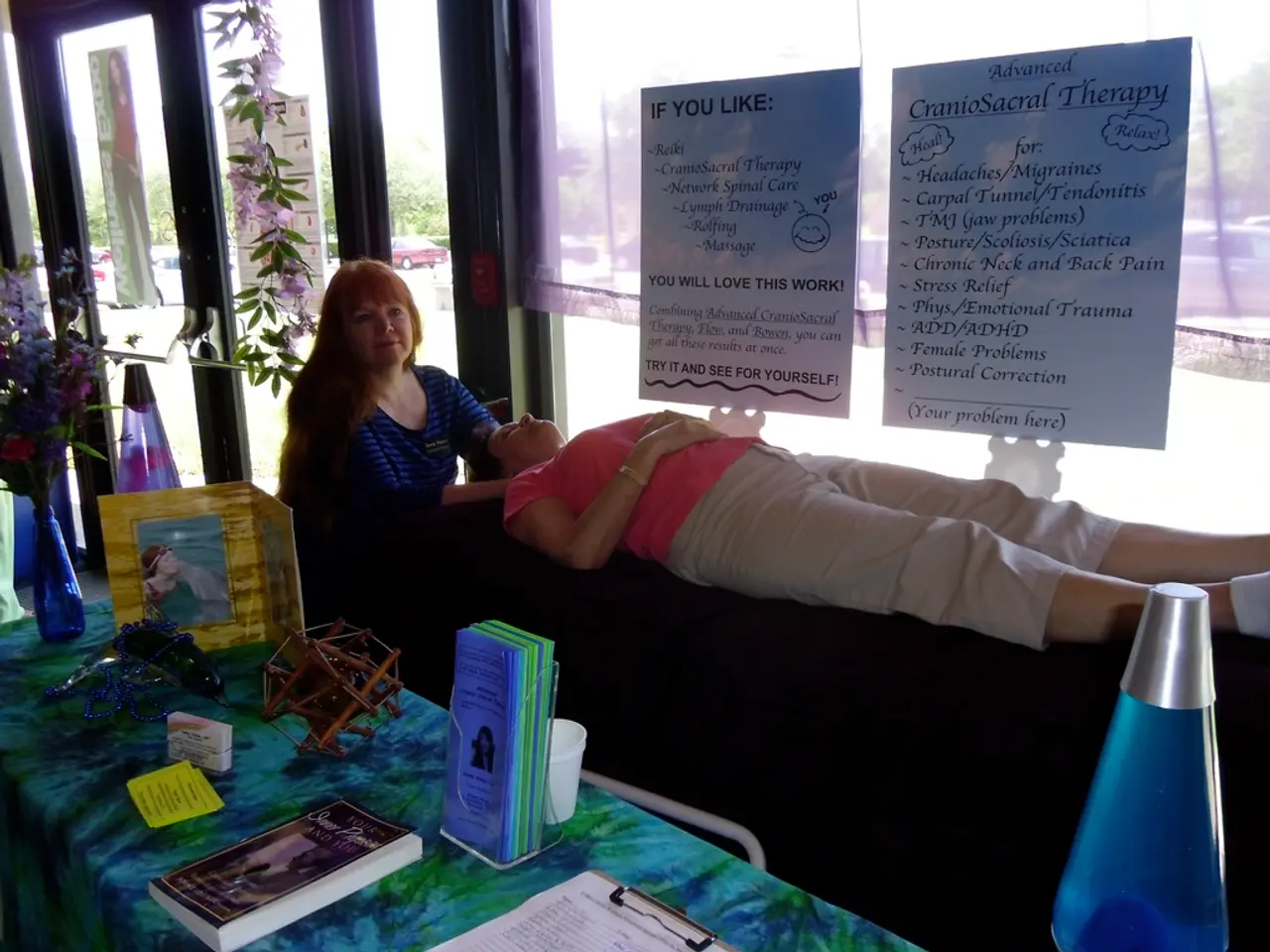Differences and Solutions for Anxiety and Depression: A Closer Look
In the complex world of mental health, anxiety and depression are two common conditions that often coexist, causing distress for millions worldwide. While sharing some symptoms and causes, these disorders differ significantly in their emotional experience and treatment approaches.
Anxiety, a natural response to stress or danger, becomes an anxiety disorder when it becomes excessive, persistent, and interferes with daily life. Characterized by fear, excessive worry, restlessness, and physical reactions like heart palpitations and sweating, anxiety revolves around worry and fear. Common symptoms include rapid heartbeat, shortness of breath, and difficulty concentrating.
On the other hand, depression is a mood disorder that affects how a person feels, thinks, and handles daily activities. Depression centers on sadness and hopelessness, with symptoms such as persistent sadness, loss of interest in activities, fatigue, changes in appetite, and difficulty sleeping. Unlike anxiety, depression is not typically associated with physical reactions, although it can manifest in fatigue and changes in sleep patterns.
Both conditions can share similar causes, often linked to neurochemical imbalances in the brain involving neurotransmitters like serotonin, dopamine, and norepinephrine. Genetics, brain chemistry, stressful life events, and environmental factors can contribute to both anxiety and depression.
Treatment for anxiety and depression often involves a combination of medication, therapy, and lifestyle changes. Common medications include antidepressants (Selective Serotonin Reuptake Inhibitors, or SSRIs, and Serotonin and Norepinephrine Reuptake Inhibitors, or SNRIs) for both conditions, as well as benzodiazepines for anxiety. Therapy options include Cognitive Behavioral Therapy (CBT), mindfulness-based therapies, or counseling to help develop coping strategies. Lifestyle modifications such as regular exercise, a healthy diet, adequate sleep, and mindfulness and relaxation techniques are beneficial for both conditions.
Because anxiety and depression often co-occur, many treatment strategies overlap and can address symptoms of both simultaneously. Understanding the differences between anxiety and depression is essential for individuals suffering from these disorders, their family members, caregivers, and mental health experts.
Early diagnosis and treatment are crucial for managing anxiety and depression. If you or someone you know is experiencing symptoms of anxiety or depression, it is essential to seek help from a mental health professional for an accurate diagnosis and effective personalized treatment plan. Remember, you are not alone, and help is available.
[1] American Psychiatric Association. (2013). Diagnostic and statistical manual of mental disorders (5th ed.). Arlington, VA: American Psychiatric Publishing. [2] National Institute of Mental Health. (2020). Anxiety disorders. Retrieved from https://www.nimh.nih.gov/health/topics/anxiety-disorders/index.shtml [3] National Institute of Mental Health. (2020). Depression. Retrieved from https://www.nimh.nih.gov/health/topics/depression/index.shtml
- Mental health professionals can use therapies and treatments such as Cognitive Behavioral Therapy (CBT) and mindfulness-based therapies to help manage anxiety and depression.
- Consistent exercise, a nutritious diet, and adequate sleep are lifestyle modifications that can benefit those with anxiety or depression.
- Neurotransmitters like serotonin, dopamine, and norepinephrine play significant roles in the development of anxiety and depression.
- Anxiety can lead to physical reactions like heart palpitations and sweating, while depression is characterized by sadness and hopelessness.
- Genetics and environmental factors can contribute to the development of anxiety and depression.
- Medical-conditions like cardiovascular disorders, chronic diseases, respiratory conditions, digestive health issues, and eye-health problems can be influenced by mental health status.
- Mental health experts suggest that understanding the differences between anxiety and depression is essential for individuals struggling with these disorders, their family members, and caregivers.
- Sleep disturbances, changes in appetite, and fatigue are common symptoms of both anxiety and depression.
- There are various medications available to treat anxiety and depression, including Selective Serotonin Reuptake Inhibitors (SSRIs) and Serotonin and Norepinephrine Reuptake Inhibitors (SNRIs).
- Skin care and treatments, such as therapies for skin conditions or autoimmune disorders, can impact overall health and wellness.
- Meditation, yoga, and other stress-relieving techniques can be beneficial for mental health and offer coping strategies for anxiety and depression.
- Neurological disorders, such as hearing loss, neurological diseases, or neurological conditions, can affect mental health and well-being.
- CBD, derived from the Cannabis plant, has been used as a natural remedy for anxiety and stress, but more research is needed to determine its effectiveness.
- In the complex realm of health and wellness, proper nutrition, regular exercise, good sleep hygiene, and mental health management are all interconnected.
- Fitness and exercise, whether through running, weight-lifting, or other forms, can help build strength and improve muscle recovery, contributing to overall physical and mental well-being.
- Integrating workplace-wellness programs, policies, and resources can help employees manage stress, anxiety, and depression, creating a more productive and healthier work environment.








